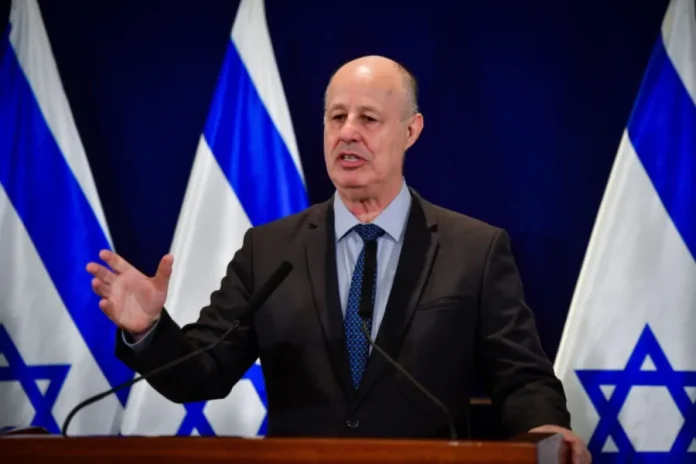Intense shelling rocked Rafah in southern Gaza on Thursday after Israel announced that its army had seized a strategic corridor along the Palestinian territory’s border with Egypt, refusing to end the war even if Hamas releases all hostages.
Israel launched its military incursion into Rafah in early May despite international objections over the safety of civilians sheltering in the city.
Israel, which has repeatedly vowed to destroy Hamas since Palestinian militants attacked southern Israel on October 7, said on Wednesday its troops had taken control of the 14-kilometre Philadelphi corridor along the Gaza-Egypt border, allegedly used for arms smuggling.
Military spokesman Daniel Hagari said Israel had taken “operational control” of the narrow border area, where he said troops had “discovered about 20 tunnels.”
Egypt, a long-time mediator in the conflict, rejected allegations that smuggling tunnels ran under the buffer zone. State-run Al-Qahera News quoted a senior Egyptian source as saying:
Israel is using these allegations to justify continuing the operation in the Palestinian town of Rafah and prolonging the war for political purposes
Egyptian officials said a potential Israeli takeover of Philadelphi could violate a 1979 peace agreement between the two countries, although there was no official comment from Cairo following the military’s statement.
Israel continues the war
Meanwhile, National Security Advisor Tzachi Hanegbi said the Israeli government would not end the war in Gaza even if Hamas releases all prisoners on October 7.
Hanegbi’s comments came during a meeting with the families of Israeli hostages. He said a “first phase” deal to return the hostages, classified for humanitarian reasons, could be reached soon, according to broadcaster Channel 12 and daily Times of Israel.
However, Hanegbi reportedly told the families, “This government will not decide to end the war for the sake of returning all the hostages.”
He also admitted that he has no alternative plan in case the hostages are not returned within the expected timeframe. He added:
If the hostages don’t return within weeks or a few short months, we have no alternate plan. We will continue to fight in Gaza and the north, and only then will we reassess.
No ceasefire expected
Earlier this month, Hamas accepted a ceasefire proposal prepared by Egypt and Qatar, but Israel rejected it and decided to launch a ground offensive in the southern city of Rafah.
Israel is seeking a temporary ceasefire, maintaining its military presence in Gaza, while Hamas insists on ending the war, withdrawing Israeli troops, allowing displaced Palestinians to return to their neighbourhoods and providing sufficient humanitarian aid as part of any prisoner swap deal.
Palestinian groups, including Hamas and Islamic Jihad, captured about 250 people, according to Israeli media estimates, during a surprise incursion into military installations and settlements adjacent to Gaza on October 7, 2023.
Israel reports that 121 of these captives remain in Gaza, and on May 26 Hamas claimed to have captured more Israeli soldiers during the Gaza operation, without disclosing a specific number. Israel has rejected this claim.
Mediated by Qatar, Egypt and the US, Hamas and Israel have been in indirect talks for months trying to reach an agreement on a hostage exchange and an end to the war in Gaza.
Israel has continued its brutal offensive on Gaza since Hamas invaded on 7 October, despite a UN Security Council resolution demanding an immediate ceasefire. Since then, more than 36,240 Palestinians died in Gaza, most of them women and children.
Nearly eight months after the Israeli war began, vast swathes of Gaza lie in ruins amid a crippling blockade of food, clean water and medicine.
The world community has been vigorously calling on Israel to stop shelling Gaza.
Former Greek Finance Minister Yanis Varoufakis wrote on X that Israel is building new settlements from where it expelled Palestinians previously:
Israeli occupation forces have established new settlements in Masafer Yatta, located south of Hebron in the occupied West Bank. This follows the forced eviction of a Bedouin Palestinian community from the Sha’ab al Butum area, where Palestinian houses and villages were demolished.
